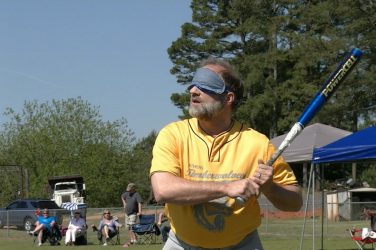By Rakel Johnson
The world of sports is being rocked by the question of whether or not athletes should keep politics and social issues off of the field.
In the midst of the #TakeAKnee protests sparked by football quarterback Colin Kaepernick, some argue that the two simply don’t mix.
However, sports have a long history of being used as a platform to speak out against injustices, and there have been numerous demonstrations throughout history. One notable example includes John Carlos and Tommie Smith, two African-American athletes, raising their fists during their medal ceremony at the 1968 Summer Olympics to protest discrimination.
Carlos and Smith faced repercussions, including being ostracized by the U.S. sporting establishment, kicked off of the U.S. Olympic team, kicked out of the Olympic village and sent home. In response to today’s #TakeAKnee protest, some are calling for similar consequences for athletes who take a knee during the national anthem, siting it as unpatriotic and disrespectful to the flag.
However, if protesting in sports is not a new phenomenon, then why is it such a hot topic right now, especially in relation to respect for the flag?
Welch Suggs, a professor of journalism who specializes in sports journalism at the University of Georgia, said that the controversy could be fueled by a combination of factors, including the newfound sense of patriotism in America after 9/11, which eventually found its way into sports.
“That’s where I think the people are talking past each other when it comes to #TakeAKnee…specifically around some people who feel that this is disrespecting our troops, and then on the flip side, you see people who say that this is the only time Kaepernick or other athletes can use their celebrity as a platform to express the concerns that they have with American society,” he said.
Standing during the national anthem on the football field is a more recent development. According to CNN, NFL players once stayed in the locker room for the national anthem. Players were not required to be on the field for the song until 2009. Standing is encouraged, but not mandatory.
Another popular argument against taking a knee is that it is disrespectful to veterans and the nation’s military. However, it was recently mentioned at #OneUGA, an event that encourages discussion about issues related to diversity and inclusion, that taking a knee was originally U.S. Army veteran Nate Boyer’s idea. Suggs believes that this fact is important in order to understand the real reason behind Kaepernick’s protest.
“Kaepernick was first sitting on the bench, and then he had a conversation with a veteran who convinced him that it would actually be more respectful for him to take a knee than to sit on the bench during the national anthem,” he said.
During a discussion, the #OneUGA event also brought up the notion that Kaepernick’s original intent for taking a knee, which is to protest the oppression of people of color, is being lost in the controversy. Suggs said this may be amplified due to president Donald Trump using the controversy as a platform to speak his beliefs, social media or the speculation that Kaepernick is being blacklisted by the NFL. Kaepernick is currently a free agent and is not under contract with any team. Collusion against his employment would be extremely hard to prove, but Suggs said the collusion is possible.
Jepkorir Rose Chepyator-Thomson, professor of sports management at UGA, agreed that it is possible for Kaepernick to be blacklisted for going against the grain. She also said that Kaepernick’s original reasons for protest are being distorted in an effort to avoid tackling the real issues of racial discrimination and oppression.
“They use the flag and partisanship as a way to maintain, to keep people quiet. Kaepernick is being used as a scapegoat for social issues,” she said. “Instead of addressing social issues that he’s pointing at, we go directly at him. His kneeling was really just saying, ‘Can we really think about this?’”





